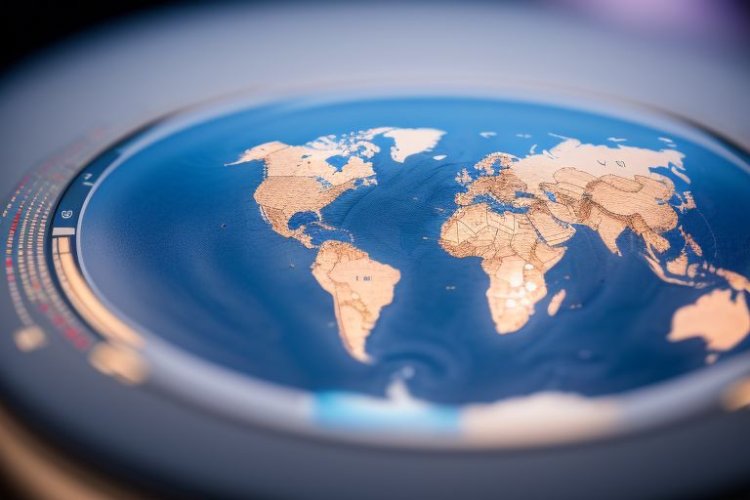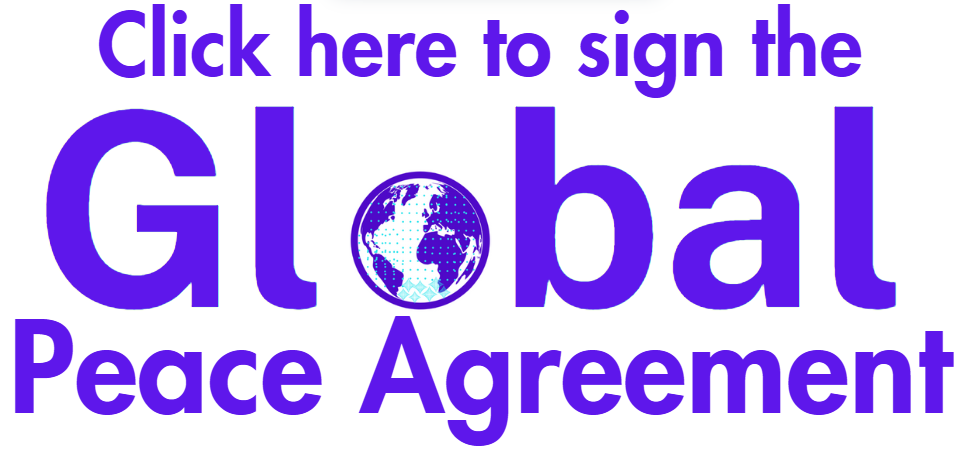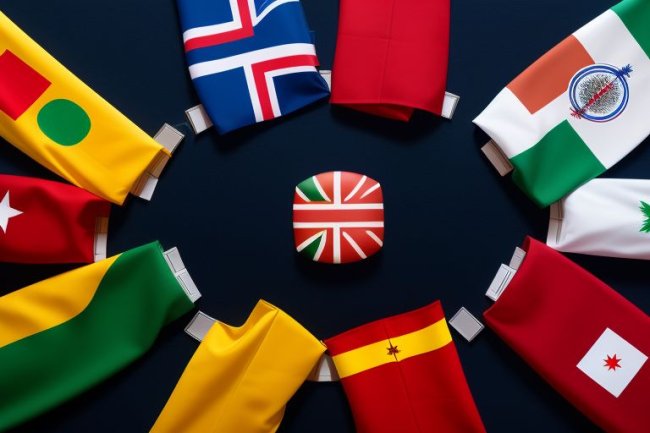Securing Equal Rights for All Nations
At the heart of the concept of equal rights for all nations lies a profound declaration of humanity's interconnectedness and shared destiny. This principle transcends geography, politics' complexities, and economic disparities. It is a rallying cry that resonates with what it means to be human—recognizing that each nation, regardless of its geopolitical stature or economic prowess, holds an inherent worth that cannot be substituted or diminished.

A Journey of Collaborative Love and Respect
In a world of diversity and complexity, the quest for equal rights among nations is a testament to humanity's yearning for justice and unity. Securing equal rights for all nations is not merely an aspirational goal but a moral imperative that demands visionary leadership, collective efforts, and a foundation rooted in love and respect.
The Essence of Equal Rights for All Nations
Equal rights for all nations are a beacon of fairness that illuminates the global stage, urging us to cast aside biases and preconceived notions. It embodies the belief that every nation, whether a sprawling powerhouse or a small island community, has an undeniable entitlement to dignity and respect. This principle acknowledges that every individual possesses unique strengths and contributions, and so does every nation offer its distinct narrative, heritage, and potential to enrich the global tapestry.
This concept celebrates self-determination—a sovereign right that empowers nations to carve their destinies free from external coercion. It champions the idea that representation and participation in global affairs should not be confined to a privileged few but extended to all corners of the world. In embracing this ethos, the international community begins building bridges of understanding across languages, ideologies, and borders, fostering unity in diversity.
Ultimately, equal rights for all nations embody the essence of our shared humanity—a reminder that despite our diversity, we are bound by a common thread that transcends the differences that often divide us. It signifies a collective pledge to uphold justice, fairness, and the recognition that our destinies are inexorably intertwined on this intricate canvas.
The Power of Collaborative Love and Respect
The power of collaborative love and respect represents a transformational force that can reshape the landscape of international relations. Beyond mere words, these principles hold the potential to transcend rhetoric and bring about tangible change that resonates across nations. When woven into the fabric of diplomacy, they become more than lofty ideals; they emerge as driving forces capable of catalyzing a new era of global cooperation.
Collaboration, acting as the cornerstone, empowers nations to transcend their capacities and unite for a shared vision of equality. It's a harmonious symphony where diverse nations contribute their unique strengths, knowledge, and resources to orchestrate solutions to complex global challenges. This unity amplifies the impact of their efforts, fostering a sense of shared purpose that defies borders and prevails over divisions.
As a catalyst, love transcends cultural, linguistic, and ideological barriers. It ignites empathy, a profound ability to comprehend the struggles and aspirations of fellow nations. This empathy bridges gaps, cultivating a deep understanding that paves the way for effective collaboration. In the face of disagreement, love encourages world leaders to seek common ground, aligning their actions with the greater good and nurturing an environment where compassion thrives.
Respect, the nurturing soil, fosters an environment where diplomacy flourishes. It's a potent elixir that tempers discourse with civility and upholds the dignity of all parties involved. With respect as the guiding principle, negotiations become a dance of ideas and compromise, devoid of condescension or dominance. This environment of mutual esteem allows for exploring creative solutions and mutual growth.
Unity, collaboration, love, and respect create a synergy that transcends the sum of its parts. They transform international relations into a grand tableau of interconnectedness, where leaders move forward together to secure equal rights for all nations. As this symphony of values resonates across global stages, it carries the potential to not only bring about equitable change but also to redefine the very nature of global discourse. The power of collaborative love and respect is a beacon that beckons us to transform the way we interact to craft a world where the pursuit of equality is rooted in compassion, united effort, and unwavering respect.
Legal Actualization Through Collaboration
1. Reimagining Global Governance Structures
The first step toward securing equal rights for all nations lies in reimagining and reforming global governance structures. World leaders can come together to design international organizations that ensure fair representation and decision-making for all nations, irrespective of their economic or political stature. Collaborative initiatives can lead to the equitable distribution of leadership roles and voting mechanisms that empower smaller nations to shape global policies actively.
2. Enforcing Universal Legal Standards
Collaboration among world leaders can manifest in enforcing universal legal standards that promote equal rights among nations. Nations can pledge to uphold principles of non-discrimination, sovereignty, and mutual respect through international treaties and agreements. Creating an international court dedicated to addressing disputes related to equal rights violations can provide a platform for impartial judgment and resolution.
3. Empowering Diplomatic Peacemaking
Diplomacy steeped in love and respect can be a potent tool for securing equal rights for all nations. World leaders, driven by a shared commitment to fairness, can engage in diplomatic peacemaking efforts to resolve conflicts and prevent further escalation. Mediation and dialogue can help dismantle barriers and misunderstandings, fostering cooperation rather than confrontation.
4. Promoting Equitable Trade and Economic Relations
Equal rights among nations extend to economic realms as well. Collaborative efforts by world leaders can lead to formulation of trade agreements that promote fairness and economic growth for all nations. Leaders can foster an environment of shared prosperity by reducing trade barriers and supporting capacity-building in economically disadvantaged nations.
5. Education and Cultural Exchange
Collaborative initiatives in education and cultural exchange can nurture a sense of interconnectedness and solidarity among nations. Educational programs that promote global citizenship education can instill in individuals the values of empathy, tolerance, and equal respect for all nations. Cultural exchanges can dismantle stereotypes and bridge cultural gaps, fostering genuine understanding.
6. Addressing Environmental and Humanitarian Crises
The global challenges of environmental degradation and humanitarian crises require united efforts to secure equal rights for all nations. Collective endeavors, such as global agreements for mitigating climate change and providing assistance during disasters, can demonstrate world leaders' dedication to protecting the welfare and rights of all countries, particularly those facing a disproportionate impact.
Securing equal rights for all nations is not a fleeting aspiration; it is a journey that requires the unwavering dedication of world leaders. Collaborative efforts guided by love and respect can transform this aspiration into a reality. As world leaders stand united, bound by the shared values of justice and fairness, they can reshape the global landscape. By reimagining governance structures, enforcing legal standards, embracing diplomacy, promoting equitable economic relations, fostering education and cultural exchange, and addressing global challenges, world leaders can weave a tapestry of equality that is a testament to humanity's collective potential.
The journey to securing equal rights for all nations is not solely a legal or political endeavor but a reflection of our shared humanity. It is a declaration that every nation's voice matters, that no nation should be left behind, and that collaboration founded on love and respect is the key to building a world where justice, unity, and equality prevail. Through these collaborative efforts, world leaders can create a legacy that resonates across generations, inspiring a world where equal rights are not just a concept but a living reality nurtured by the bonds of love and respect that unite us all.



















